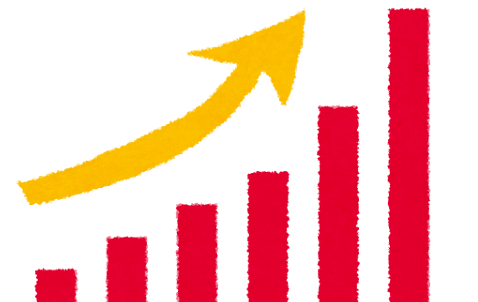 ホーム
ホーム
 エネルギー状況
エネルギー状況
 再生可能エネルギー
再生可能エネルギーについて
 エネルギーを考える
エネルギーを考える
 節電意識チェック
節電意識チェック
 まとめ
まとめ
 Language
Language
再生可能エネルギーのメリット
色々なところで話題になっている再生可能エネルギー、最近では日本の環境省も再生可能エネルギーを推奨しており、開発の補助金が出されることもあるそうです。
それには様々な理由があり、火力発電や原子力発電等の既存のエネルギー開発とは一線を画す利点がある為です。
このページでは、そのメリットをできる限り分かりやすくまとめました。

1.環境にやさしい
まず、2021年現在主流となっている発電方法の火力発電は、発電をする際、地球温暖化の原因と言われている温室効果ガスを多く排出します。
しかし、再生可能エネルギーは発電の際、温室効果ガスを排出しません。(太陽光発電は火力発電と比較して温室効果ガスの排出量が少ないです,
直接燃焼を行うバイオマス発電も、ほとんど温室効果ガスを発生しません。)
その為、近年問題になっている、環境問題の解決に対して大きく貢献することができます。

2.エネルギー自給率の向上
太陽光発電や風力発電など、地球上のあらゆる場所でエネルギーをつくりだすことができる再生可能エネルギーは、資源に乏しい日本のエネルギー自給率を向上させる切り札になるかもしれません。
2017年時点で、日本における再生可能エネルギーの比率は日本で使用されているエネルギー全体の約16%となっています。
それに比べて海外の電源構成における再エネ比率を見てみると、
カナダ65.7%
イタリア35.6%
ドイツ33.6%
スペイン32.4%
と、 日本の再生可能エネルギー比率を大きく上回っています。
日本において、エネルギー自給率を高めることが可能であるか否かは、
再生可能エネルギーの普及にかかっていると言っても過言ではありません。

3.エネルギーが枯渇することがない
このままのペースでいけば40年後には石油が枯渇する、といわれる「ピークオイル説」をご存知でしょうか。
最近耳にすることが少なくなりましたが、石炭、天然ガスなど他の資源もいずれは枯渇してしまいます。
しかし、再生可能エネルギーは太陽光、風、水の流れ、気温等、自然現象を使い発電しているため、エネルギー源が枯渇することはあり得ません。
ですので、仮に再生可能エネルギーの普及が完備された場合、資源枯渇の心配をする必要性がなくなり、長期的な観点でとても大きなメリットがあります。
まとめ
このように、再生可能エネルギーにはたくさんのメリットがあります。
従来の発電方法と比べて、たくさんの利点があり、再生可能エネルギーの開発はどんどん発展していっています。
このように見てみると、再生可能エネルギーにはメリットしかないように見えますが、逆にデメリットとなる点はどのようなところがあるのでしょうか。
次のページでそのデメリットについてまとめました。
Benefits of renewable energy
Renewable energy, which has become a hot topic in various places,
and recently the Ministry of the Environment of Japan also
recommends renewable energy, and it seems that development subsidies
may be issued.
There are various reasons for this, and it has the advantage of
being different from existing energy development such as thermal
power generation and nuclear power generation.
This page summarizes the benefits as clearly as possible.

1.Environmentally Friendly
First of all, thermal power generation, which is the current
mainstream power generation method, emits a large amount of
greenhouse gas, which is said to be the cause of global warming,
when generating power.
However, renewable energy does not emit greenhouse gases when
generating electricity. (Solar power emits less greenhouse gases
than thermal power,Biomass power generation, which burns
directly, also produces almost no greenhouse gases. )
Therefore, it can greatly contribute to the solution of
environmental problems, which have become a problem in recent
years.

2.Improvement of energy self-sufficiency rate
Renewable energy, which can produce energy anywhere on the
planet, such as solar and wind power, may be the key to
improving the energy self-sufficiency rate of resource-poor
Japan.
As of 2017, the ratio of renewable energy in Japan is about 16%.
Looking at the renewable energy ratio in the overseas power
source mix, Canada 65.7%, Italy 35.6%, Germany 33.6%, and Spain
32.4%, which are much higher than Japan's renewable energy
ratio.
It is no exaggeration to say that increasing the energy
self-sufficiency rate in Japan depends on the spread of
renewable energy.

3.Never run out of energy
Do you know the "peak oil theory" that oil will be depleted in
40 years if we keep pace? I haven't heard much about it these
days, but other resources such as coal and natural gas will
eventually be depleted.
However, since renewable energy is generated using natural
phenomena such as sunlight, wind, water flow, and temperature,
the energy source cannot be exhausted.
Therefore, if the spread of renewable energy is complete, there
is no need to worry about resource depletion, which is a great
advantage from a very long-term perspective.
summary
As you can see, renewable energy has many benefits. There are many
advantages over traditional power generation methods, and the
development of renewable energy is steadily developing.
Looking at it like this, it seems that there are only good points,
but on the contrary, what are the disadvantages?
The disadvantages are summarized on the next page. Please take a
look.